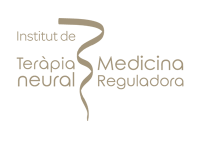6 Dimensions Of Wellness
12 Minutes
Focusing on well-being in our lives creates resilience and allows us to thrive in the face of adversity. Emotional, physical, occupational, social, spiritual, and intellectual wellness are fostered by the holistic health and wellness model. In order to achieve a holistic sense of well-being and fulfillment, we must address all six dimensions of health and wellness in our lives. These concepts are compatible with the long-held definition of wellness. Wellness is a proactive process by which people gain awareness of, and make decisions toward a better life.
This interconnected model for the Six Dimensions of Wellness, developed by Dr. Bill Hettler, provides the categories from which health and wellness authorities derive their resources and services. The concept of wellness has been used in a variety of contexts. Despite differing perspectives on what wellness entails, with the support of health and wellness experts, health and wellness authorities have provided a variety of wellness interpretations and models.
According to this discourse, wellness appears to be a purposeful, self-directed, and continuous process of realizing one’s full potential. Wellness is a multifaceted and holistic concept that encompasses a person’s lifestyle, spiritual and mental well-being, as well as their immediate surroundings and their environment. Wellness is uplifting and reassuring.
While you cannot always control your health, you can choose wellness by living a responsible life and making proactive efforts to improve your well-being.
Health includes illness/disease diagnosis, disease susceptibility, and any unforeseen injury.
Wellness is a dynamic process of development and progress that leads to optimal health and well-being. It is linked to actively participating in activities, making decisions and changes in lifestyle, reducing risk factors that can hurt a person, emphasizing nutrition, eating a balanced diet, and practicing spiritual practices that promote holistic health.
Conditions or actions that enhance a person’s chance of sickness or damage are known as risk factors. The following are among the risk factors that can be detrimental to one’s health:
- Smoking: Smoking is a significant contributor to lung cancer and heart disease.
- Drinking and use of illicit substances: Alcohol consumption can result in liver impairment, heart disease, stroke, and cancer.
- Unprotected sex: Sexually transmitted diseases, such as the human immunodeficiency virus, are transmitted through unprotected sex.
- Extreme sports and physical activity: This might result in fractured bones and other injuries.
When it comes to improving one’s health, most people begin with food and exercise. However, there is more to contemplate than physical health in order to feel and stay healthy.
The goal of continual progress and equilibrium in the six dimensions of health is defined as wellness. Many individuals associate “wellness” solely with physical health. The word conjures up images of food, exercise, weight control, blood pressure, and so on. Wellness, on the other hand, encompasses much more than physical well-being. Physical, spiritual, and mental well-being are all part of wellness. Quality of life is the result of a complicated relationship.
Wellness is often seen to have six dimensions. Each dimension impacts and overlaps the others, contributing to our personal feeling of wellness or life quality. One dimension may be more apparent than others at times, but neglecting anyone for an extended period of time has negative consequences for overall health.
The following is an overview of the six dimensions of health and wellness:
Physical
The physical component recognizes the importance of regular exercise. Physical development promotes dietary and nutritional knowledge while preventing the use of tobacco, narcotics, and excessive alcohol intake. The combination of appropriate exercise and eating habits leads to optimal wellness. You’ll attempt to spend time improving physical strength, flexibility, and endurance while also adopting safety precautions, such as medical self-care and appropriate use of a medical system, as you journey along the wellness road. Individual responsibility and care for mild ailments are part of the physical aspect of wellness, as is knowing when expert medical help is required. You will be able to keep a check and supervise your own vital signs and recognize your body’s warning signs if you follow the wellness route.
You will recognize and appreciate the link between a good diet and your body’s performance. The psychological benefits of improved self-confidence, self-control, perseverance and a sense of direction generally follow the physical ones of looking good and feeling great.
The following principles govern physical wellness:
- It is preferable to consume foods and drinks that promote health rather than those that harm it.
- Being physically fit is preferable to being out of form.
Social
Giving back to one’s surroundings and community is encouraged by the social dimension. It highlights the interconnectedness between people and nature.
You will become much more conscious of your role in society and the effect you have in many contexts as you progress down a wellness path. By promoting healthier living and establishing better communication with others around you, you will actively contribute to the improvement of our planet. Along the process, you will find the power to make purposeful decisions to improve personal relationships and significant friendships, as well as to improve your living space and community.
The principles governing social wellness are as follows:
- Contributing to the common good of our community is preferable to thinking just of ourselves.
- Living in peace with others and our surroundings is preferable to living in a confrontation with them.
Intellectual
The intellectual dimension acknowledges one’s mentally stimulating and creative pursuits. A healthy individual broadens his or her knowledge and abilities while also preparing to share his or her assets with others. A well-rounded person values intellectual development and stimulation by combining cultural and intellectual activities in and out of the classroom with the human and learning resources available inside the university environment and the greater community. You will examine problems like solving problems, innovation, and learning while on a wellness journey. You will devote more time to personal pursuits including reading books, periodicals, and newspapers to stay informed about current events and ideas. You will actively seek to broaden and challenge your thinking with creative projects as your intellectual curiosity grows.
The principles governing intellectual wellness are:
- It is preferable to extend and push our thoughts through creative and critical thinking endeavors than to become complacent and unproductive.
- Waiting, worrying, and dealing with serious concerns later is preferable to identifying possible problems and choosing suitable plans of action based on available knowledge.
Spiritual
The spiritual component acknowledges our quest for purpose and meaning in life. It entails cultivating a great admiration for the breadth and depth of existence as well as the forces of nature that occur in the universe. The peaceful equilibrium among individual internal feelings and thoughts and the harsh and rugged sections of your road will define your search. You may have various sensations of doubt, fear, despair, dislocation, and disappointment while walking the path, as well as ones of pleasure, happiness, joy, and discovery. These are all crucial experiences and elements in your search, and they will be reflected in the value system you develop to give meaning to your life. When your actions grow more consistent with your values and beliefs, culminating in a “world view,” you’ve progressed spiritually.
These principles govern spiritual wellness:
- It is preferable to reflect on our own meaning and purpose in life and be tolerant of others’ ideas than to close our minds and become intolerant.
- It is preferable to live each day in accordance with our beliefs and values than to live in a way that makes us feel untrue to ourselves.
Emotional
The emotional dimension acknowledges emotional awareness and acceptance. The extent to which one feels optimistic and passionate about oneself and life is referred to as emotional well-being. It encompasses the ability to control one’s emotions and behaviors, as well as a realistic evaluation of one’s limitations, the growth of autonomy, and the capacity to handle stress effectively. A healthy individual has satisfying interpersonal relationships. To be healthy, you must be aware of and tolerate a wide spectrum of emotions in yourself and others. You’ll be able to express feelings openly and efficiently if you follow the wellness route.
You’ll be able to make your own selections and choices based on a combination of emotions, thoughts, beliefs, and conduct. You will live and work autonomously while understanding the value of asking and appreciating others’ help and support. You’ll be able to establish interdependent connections with others based on mutual trust, commitment, and respect. You will accept challenges, take chances, and see disagreement as possibly beneficial. Taking personal responsibility for your choices and organizing your life in personally fulfilling ways will help you see life as an interesting, hopeful experience.
The following principles govern emotional well-being:
- It is preferable to acknowledge and accept our emotions than to deny them.
- It is preferable to be optimistic rather than gloomy in our outlook on life.
Occupational
The occupational component sees employment as a source of personal fulfillment and enrichment. The idea that professional development is linked to one’s attitude toward one’s work is at the heart of occupational wellness. You will offer your unique traits, skills, and talents to work that is both intrinsically rewarding and satisfying as you pursue occupational wellness. Your ideals will be communicated through your participation in activities that you enjoy. The geography of your journey includes your choice of vocation, employment contentment, professional objectives, and personal performance.
These principles govern workplace wellness:
- It is preferable to choose a career that aligns with our personal beliefs, hobbies, and values over one that is unsatisfying.
- Developing useful, valuable skills through organized involvement chances is preferable to remaining inactive and uninvolved.
A person becomes aware of the interconnection of each component and how they promote healthier living by using the model.
This holistic model explains:
- How a member of the community contributes to his or her society and surroundings, and how to improve living places and social networks;
- The value of work in one’s life and its relationship to living and playing;
- The formation of values and belief systems, as well as the formation of a worldview
- Regular physical activity, healthy diet, good eating habits, stamina, and vitality, as well as individual responsibility, self-care, and when to seek medical assistance, are all advantages;
- As a direction in life, self-control, self-esteem, and resolve
- Mentally stimulating and creative hobbies, as well as sharing your talents with others.
A holistic wellness approach can be beneficial in almost any human effort. Wellness is being applied to allied sectors like holistic health and health promotion, and there has been an increase in “helping professions” like counseling and medical arts and practices, as a gateway to optimal living. The National Wellness Institute developed three questions to assist individuals and organizations in deciding the level to which wellness is included in a specific strategy or program:
- Is this assisting people in reaching their full potential?
- Is this a multi-dimensional strategy that recognizes and addresses the person as a whole?
- Is this a positive affirmation and mobilization of people’s admirable characteristics and strengths?
Physical wellness tips
- Daily exercise
- Get enough sleep
- Wear helmets, seat belts, and other safety gear.
- Identify the early signs of illness.
- Consume a wide range of nutritious foods.
- Portion control is important when eating.
- Give up smoking and safeguard yourself from secondhand smoke.
- If you must drink alcohol, do it in moderation.
Tips for achieving emotional balance
- Pay attention to your feelings and thoughts.
- Maintain a positive outlook.
- Seek and provide support.
- Learn how to manage your time.
- Use stress-reduction strategies.
- Self-acceptance and forgiveness
Mental wellness tips and suggestions
- Attend a seminar or a program.
- Learn (or improve) a second language.
- Seek out academically or intellectually challenging people.
- Read
- Develop an appreciation for art.
Social wellbeing tips and suggestions:
- Develop positive relationships.
- Participate and engage yourself in positive social activities
- Make a difference in your town.
- Share your abilities and capabilities.
- Communicate your emotions, thoughts, and views.
Tips and recommendations for spiritual wellness
- Examine your spiritual foundation.
- Spend time alone or meditate regularly
- Be curious and inquisitive.
- In everything you do, be fully present.
- Listen and look with your heart and follow your values.
- Let yourself and others around you be who they truly are.
- Consider the problems that life throws at you as opportunities for progress.
Environmental wellness tips and recommendations
- Stop your junk mail
- Water and other commodities should be conserved.
- Reduce your chemical usage.
- Reducing, Reusing, and Recycling
- Renew your bond with nature.
FAQs
What Is The Difference Between Wellness And Well-being?
Wellness is the state of staying healthy, particularly when you actively seek it. In contrast, well-being is defined as overall health and happiness, a condition of emotional/psychological/physical well-being. Within these criteria, wellness can simply be defined as the daily quest for a sense of well-being, with physical activity, movement, sleep, meditation, and diet as examples. To put it another way, the distinction is between action and effect.
However, wellness is also experiencing an identity problem; it is presently undergoing a popularity overload, with everyone wanting to be ‘it’. The term “wellness” is overused for a variety of reasons: it’s imprecise, commercialized, fashionable, a lifestyle, a slogan, a hashtag, and so on. When considering how to create a state of well-being, we must see wellness as a way of life. However, because health takes on so many various forms for different individuals and cultures around the world, it’s difficult to narrow the focus.
Is Mental Health Different Than Emotional Health?
Mental health affects your ideas and actions, and it encompasses three different sorts of happiness:
Psychological
Emotional
Social
Your mental health can have an impact on many aspects of your life, from how effectively you handle stressful situations to how well you sustain relationships with others.
Emotional wellness entails being emotionally aware as well as being able to manage and express them in an age-appropriate manner.
There are no quick answers for improving your emotional health, but there are numerous actions you can take. Instead of concentrating on any perceived weaknesses, learn to find the positive in events and work on improving your strengths.
While emotional and mental health are related in some ways, it’s crucial to understand that they’re not the same thing.
HOW SENSES CAN HELP WITH Wellness
Senses is a leading provider of luxury addiction and mental health treatment for affluent individuals and their families, offering a blend of innovative science and holistic methods with unparalleled individualised care.
A UNIQUE METHOD
successful and proven integrative holistic conceptOur program consists of treating only one client at a time individually designed to help you with all the problematic aspects of your life. All individual treatment sessions will be held at your private residence.
more infoYour program is designed based on your personal needs. The team will exchange daily information and adjust the schedule as we go. Our therapists will work with you treating integrative not just the symptoms and goes beyong your stay to ensure lasting success.
more infoOur biochemical imbalance can be affected by diet and stressful life events, but it often goes back to genetics and epigenetics. We do specific biochemical laboratory testing to determine an individual’s biochemical imbalance. Combining the results of the lab tests with anamnestic information and clinical tests, we prescribe an individualized and compounded vitamin, mineral, nutrient protocol to help recover from various disease states.
more infoOur experts combine the best from psychological treatment, holistic medicine to support you individually and providing complementary therapies all coordinated from one source working complementing each other integrative.
more infoUsing latest cutting-edge technology-based therapies such as Neurofeedback, tDCS, and SSP, we can track the biological patterns of your body, giving us valuable insight into your health and well-being as well support your brain and body performance and recovery with neuromodulation.
more infoOur chef and nutrition specialist will design your personalized diet plan supporting your body & mind recovery as well as helping with weight management. Nutrition workshops and mindful eating sessions will help you to maintain a healthy lifestyle.
more infoWellness TREATMENT LASTING APPROACH
0 Before
Send Request
0 Before
Define Treatment Goals
1 week
Assessments
1-4 week
Integrative Holistic Therapies
5-12 week
Aftercare
12+ week
Refresher Visit
Wellness Insights
latest news & research on Wellness
Stress Management
Stress management isn't a magic wand that makes stress vanish. Instead, it's a toolkit full of strategies and techniques that help you handle stress better
read more
Leadership Burnout
Leadership burnout, often termed executive burnout or executive stress syndrome, encapsulates the exhaustive toll that high-stakes leadership roles take on individuals
read moreAccreditations





























































